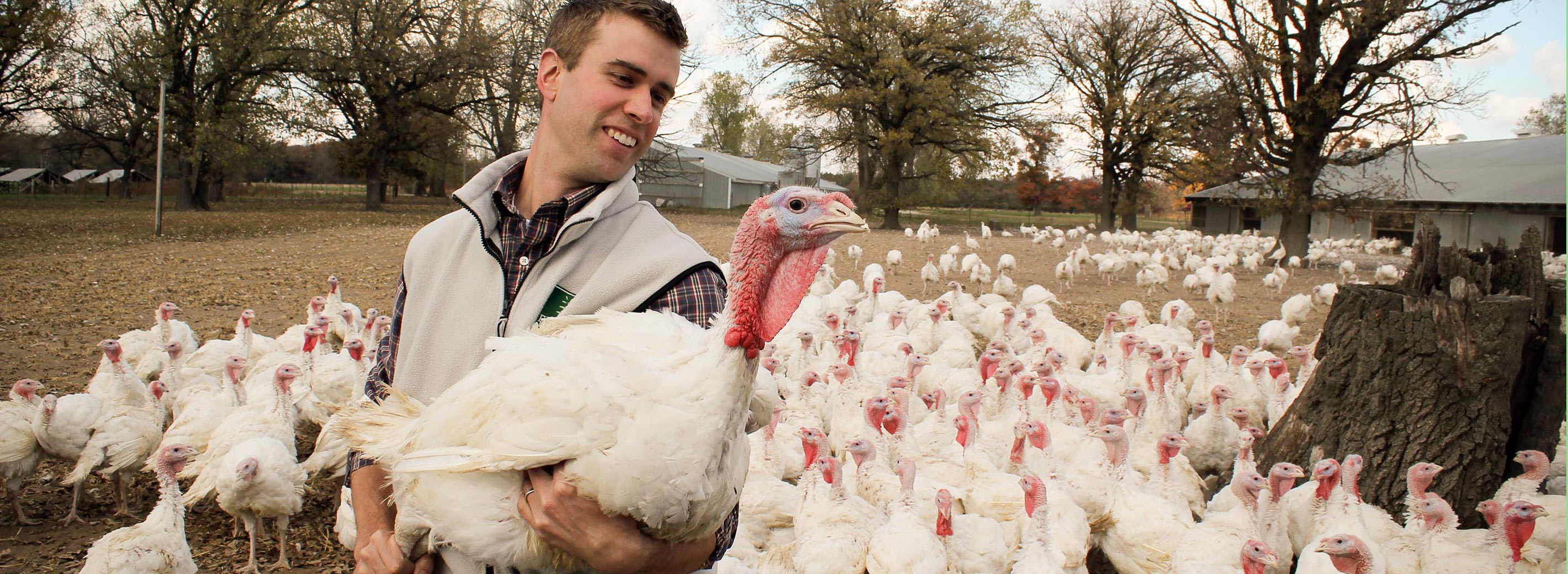
Fighting Antibiotics Abuse
Sourcing chicken, turkey, pork, and ground beef from animals raised without antibiotics as a routine additive to their feed or water
As a socially responsible company, we are committed to helping address the public health threat from antibiotic resistance.
Since the 1950s, cattle, hogs, and poultry have routinely been given antibiotics to make them grow faster and to prevent and treat diseases caused by the unnatural and unhealthy conditions in which they are being raised. The Food and Drug Administration has estimated that as much as 80% of antibiotics sold in the United States goes to food-producing animals. This overuse has resulted in a human public-health crisis, with the rise of drug-resistant superbugs. Yet withholding antibiotics from sick animals can be inhumane.
As the first food service company to address this issue, we have had a patchwork of different antibiotic policies for many years. In 2002 we partnered with Environmental Defense Fund to look at how we could support decreasing the meat and poultry industry’s abuse of antibiotics, and in 2003, we committed to chicken raised without the routine, “non-therapeutic” use of these drugs in their feed or water — the first food-service company to make this switch. We extended our policy to purchases of turkey breast in 2005 (and to all turkey in 2010), making us the first restaurant company to take a stand on antibiotic use in turkey production.
Starting in March 2007, we began requiring our chefs to purchase ground beef from suppliers who commit that they do not use antibiotics (ever), added growth hormones (ever), or animal byproducts in feed (ever). And as of 2016, all our contracted pork also comes from animals never given non-therapeutic antibiotics or growth promoters.
In January 2019, following extensive consultation with the Center for a Livable Future, an independent group of experts at Johns Hopkins University, we streamlined our antibiotics policy to state that we will strive to buy only meat, and poultry, and seafood raised without the use of antimicrobials, except where necessary to treat sick animals in the documented presence of disease in the flock, herd, or fish population as verified by a veterinarian.